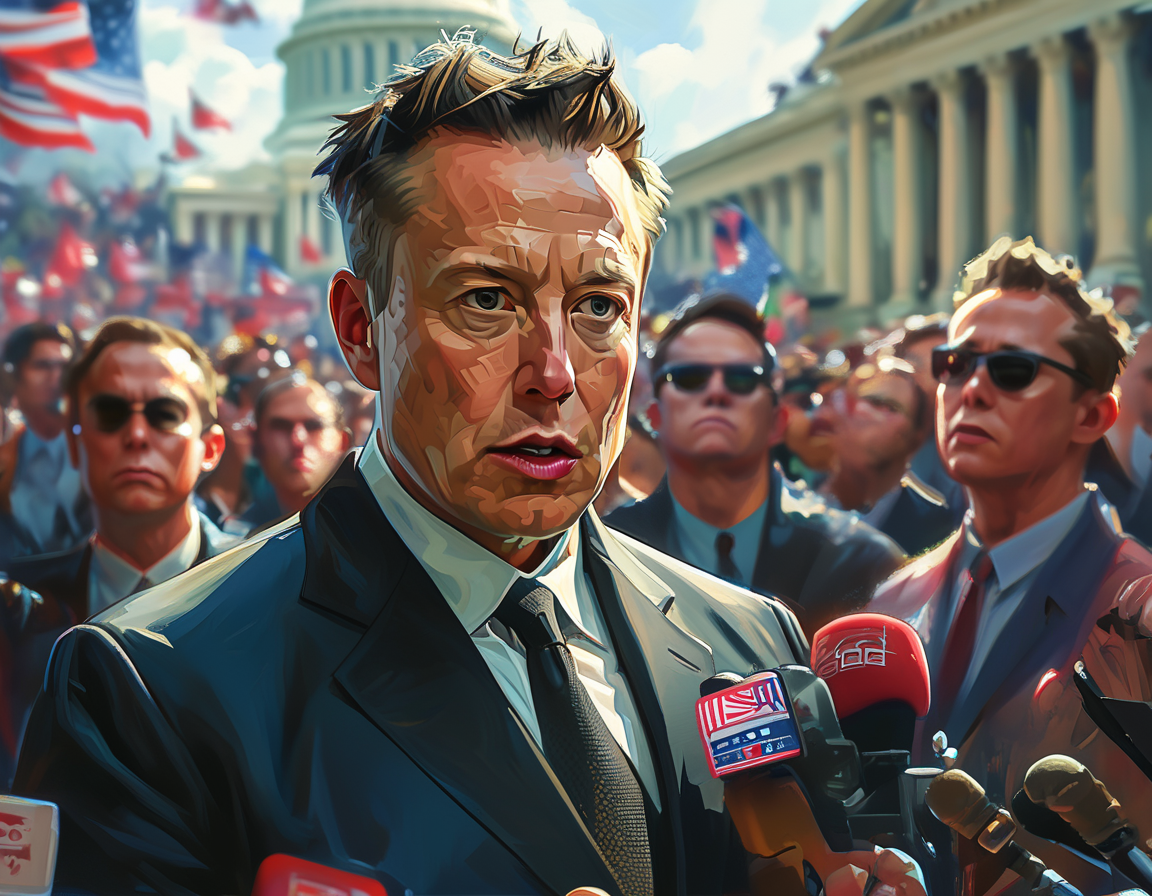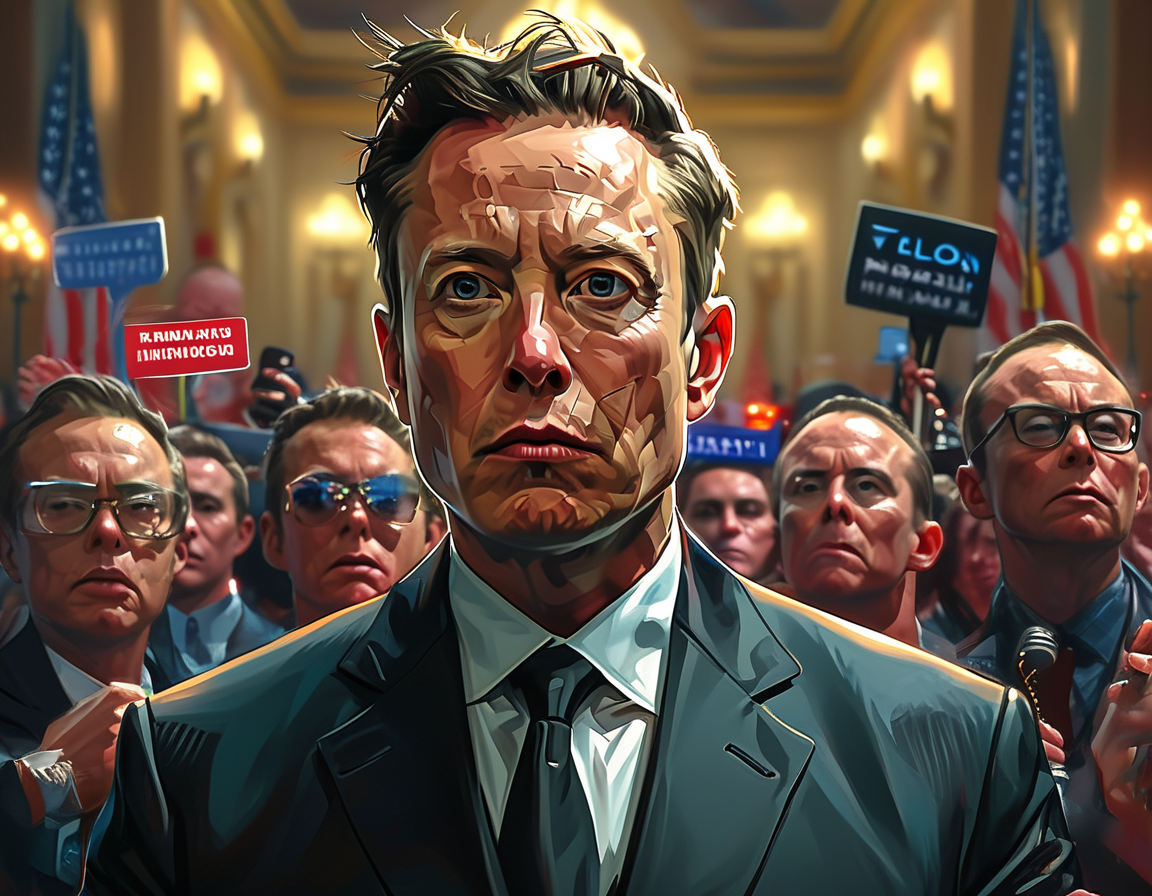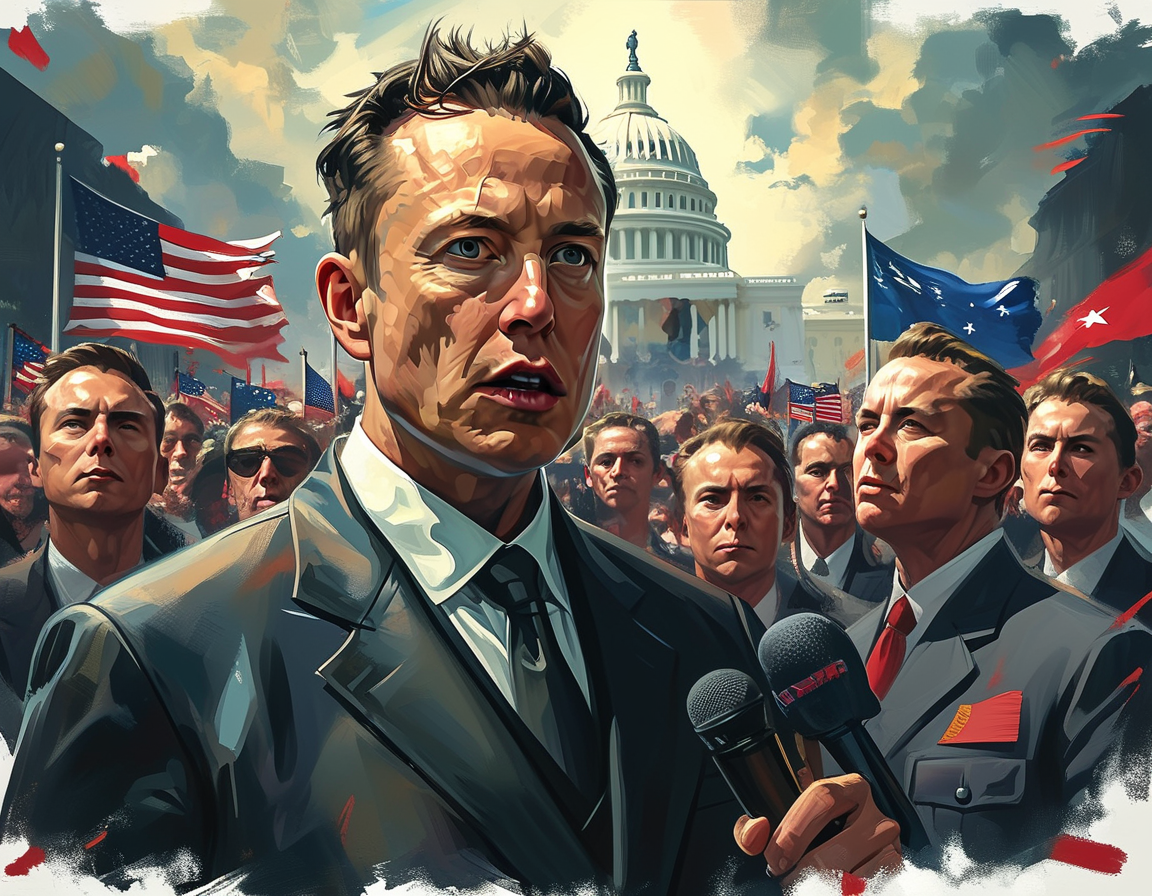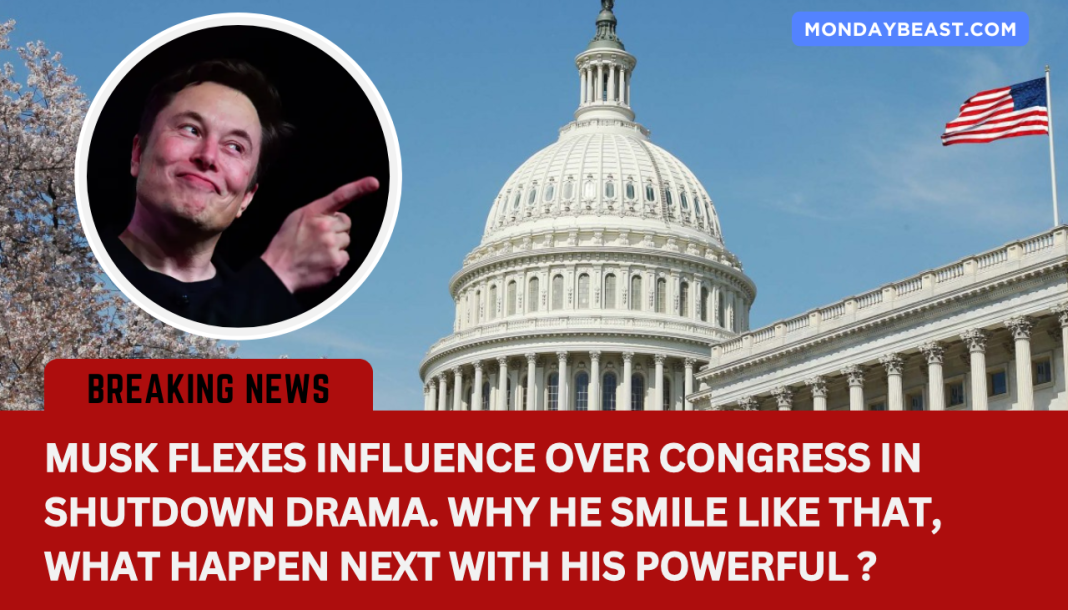Elon Musk has made his mark on politics. His recent social media outburst rocked Capitol Hill as Democrats and Republicans grapple with a looming government shutdown. But just how did Musk become such a dominant force in this political landscape?

Musk’s 150 posts on X before dawn on Dec 18 contained a mix of demands and misinformation. He called for a bipartisan spending bill rejection. One can imagine lawmakers grinding their teeth at their phones, checking notifications of Musk’s relentless tweeting. It’s intriguing—his tweets certainly stirred up the pot.
The rich getting richer and more powerful? Musk’s call for political retribution created ripples. House Speaker Mike Johnson even reached out to stop Musk, fearing his power. One wonders, how much sway does a billionaire have over elected officials? Shouldn’t we question this?

Senator Bernie Sanders promptly criticized Musk’s involvement. He remarked on social media, stating that a billionaire shouldn’t run the government. It beckons the question—can this billionaire influence really slide into government decisions?
Glenn Thompson, Agriculture Committee chair, chimed in as well. He bluntly noted that Musk doesn’t vote. Despite this, Musk’s voice commanded attention. Isn’t it just mind-boggling how a tech mogul wields power in political arenas?

As Trump sought to reclaim his narrative, he issued statements that backed Musk’s platform. Trump warned Johnson against giving in. It felt like a dance of dominance among power players. Does this mean Congress members are now beholden to billionaires?
Amid this whirlwind, the spending bill fight isn’t just political theater. It affects lives. The tension echoed across the House floor as representatives expressed frustration and concern. Did lawmakers feel trapped in a game controlled by a tech giant?
Some conservatives rallied around Musk, calling his engagement a sign of change. Representative Dan Bishop claimed it marked a fundamental shift. But is this a battle of ideals or a fight for control?
A suggestion emerged amongst some Republicans. They proposed Musk as a potential Speaker of the House. Can you imagine? They even believed this could shake the establishment. Such a notion seems outrageous, but is it far-fetched?
As the government shutdown looms, the stakes might be higher than ever. Lawmakers are feeling pressure, unsure how this influence affects their decisions. Shouldn’t we worry about direct meddling in political processes?
In the chaos of political scheming, the danger is palpable. Lawmakers and citizens alike must mark their place amid these shifts. The idea that a billionaire could orchestrate political movements leaves many questioning the power dynamics. Is this the future of American politics?




